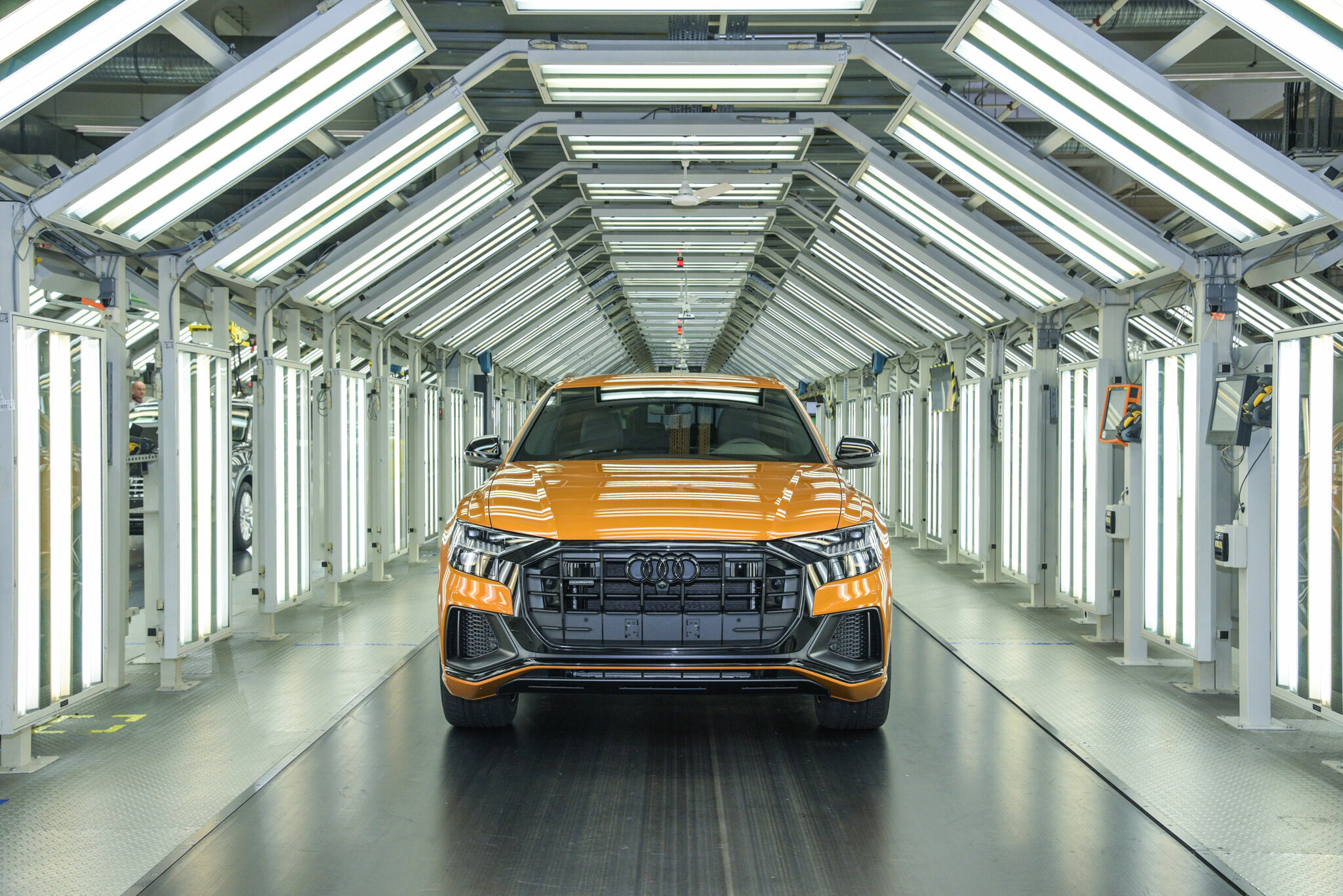Profile of location
Back to overviewAudi has been manufacturing the Audi Q7 since 2005 and the Audi Q8 since 2018 at the Volkswagen plant in Slovakia, the capital city of Bratislava. The site produces vehicles for four Volkswagen Group brands.
For the lightweight body of the Audi Q7 and Q8, the company has built its own body construction facilities at the Volkswagen Group plant over an area of more than 110,000 square meters, housing over a thousand robots and state-of-the-art machinery and equipment.
The primary aluminum body parts are manufactured at the press shop in Bratislava using one of the strongest presses in the Volkswagen Group. At its maximum, the pressing force in the press line can reach 91,000 kilonewtons. Subsequently, workers assemble, solder, and glue the individual parts into a complete vehicle body. They use state-of-the-art technologies such as laser and plasma welding as well as new, unconventional technologies, including flow drill screwing (FDS), clinching, and friction element welding.
A long history
Volkswagen Slovakia was founded on May 30, 1991. Back then, the factory’s 112 employees mainly assembled the cars by hand. A Volkswagen Passat was the first vehicle to leave the production line at the Bratislava site in December 1991. Today, Volkswagen Slovakia has around 12,500 employees, assisted by state-of-the-art and innovative technologies, automated systems, and robots.
Since its founding, Volkswagen Slovakia has manufactured over 7 million vehicles. The company is a mainstay of the Slovakian export trade and one of the largest private employers in Slovakia. The Volkswagen Group has invested over 5.5 billion euros in the country to date.
In addition to the Audi Q7 and the Audi Q8, the plant manufactures the Volkswagen Touareg, the Porsche Cayenne, the Porsche Cayenne Coupé, the Volkswagen Passat, the Škoda Superb, and the Škoda Superb Combi.
Sustainability
With new investments, Volkswagen Slovakia takes care to minimize its impact on the environment. This includes continuously modernizing production and implementing technologies that help reduce CO2 emissions, thus improving environmental protection. In support of the electrification of the vehicle fleet, charging stations for company cars with electric and hybrid drivetrains are being added to the Bratislava plant’s grounds. A waste management system is in place at all workplaces, which minimizes waste through proper separating and recycling. In addition, the production facilities significantly contribute to reducing the environmental burden by continuously implementing organizational measures.
Volkswagen Slovakia is the first of the group's multi-brand sites to join the Aluminum Closed Loop project. This project involves recycling aluminum stamping offcuts from the press shop, which are returned to the supplier of the aluminum rolls. The supplier reprocesses the offcuts, enabling their return to production without any loss of quality. The use of secondary aluminum saves up to 95 percent of energy compared to primary aluminum.
Volkswagen Slovakia also contributes to the preservation and improvement of biodiversity. Its protection is part of its ZERO IMPACT FACTORY strategy. To this end, the company planted over 1,800 deciduous and coniferous trees in the Volkswagen Slovakia complex. It is also planting flowering meadows as part of new projects. Employees put up insect hotels, birdhouses, and feeders at the Volkswagen Slovakia plants to support biodiversity. Long-term projects to protect endangered species are also part of the sustainability strategy.
